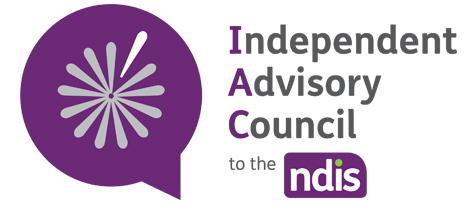First Nations Reference Group meeting bulletin, 11-12 June 2025
The Independent Advisory Council (IAC) First Nations Reference Group (Reference Group) met in Gimuy, Cairns and online on 11-12 June 2025.
The Reference Group discussed:
what they have heard in their communities
the Reference Group’s Work Plan
the work of the NDIA’s First Nations Group
the NDIA’s rural and remote strategy.
Ms Leah van Poppel, IAC Principal Member and Reference Group Co-Chair and Uncle Frank Curtis, Reference Group Co-Chair, led the meeting.
What members have heard in their community
Members discussed the recent passing of First Nations peoples with disability in police custody. These incidents raise issues of the use of excessive force, reduced community trust, and require solutions.
Members discussed foundational supports, and community confusion about how they will work.
Members raised how participants are receiving eligibility reassessment letters and feel there is not enough help from Local Area Coordinators (LACs), plan managers, or First Nations organisations to support First Nations participants. They are also concerned that these organisations don’t understand and share what the community is experiencing with the NDIA.
Gathering evidence for an eligibility reassessment can be hard, especially for First Nations participants who live in regional, rural or remote areas. Members noted how some occupational therapists have wait lists of up to 3 years. Speech pathologists are also hard to find among First Nations communities.
Members shared concerns about how eligibility reassessments can cut off much needed support for participants. Scheme participants must again prove their permanent disability for the reassessments.
Members talked about issues First Nations peoples with disability experience when trying to access disability services. There aren’t enough First Nations peoples working in health services because they're not putting themselves up for jobs in the industry. Members noted how many service providers are part of faith-based or Christian organisations, which can be intimidating for First Nations peoples. Further, members noted a lack of therapists in regional areas forces participants to travel to metropolitan areas, with the travel costs coming from their plans.
The NDIA noted the number of First Nations staff in the Agency is 234, which is just under its 5% goal.
Members asked for support to gather more community feedback. They face challenges getting the word out about NDIS resources.
Cairns community forum
Members met with members of the Gimuy/Cairns First Nations community, who shared some of their experiences, challenges and frustrations with the NDIS.
They discussed multiple issues, including higher-than-average levels of people with autism, intellectual disability, and developmental delays in the community.
Some community members called for the incorporation of a peak body to represent the voices of people with disability in North Queensland.
Reference Group members told attendees that they understood the challenging issues the community face and said that they would share them with the NDIA.
First Nations Group update
Representatives from the NDIA’s First Nations Group talked to Members about their work, including:
Co-designing and consulting with First Nations peoples with disability about ways to make the NDIS work better for them
How the NDIA might be able to attract more First Nations providers to deliver culturally safe services to First Nations participants
Increasing the number of First Nations peoples working for the NDIA, including a dedicated team at the contact centre so First Nations participants can talk directly to First Nations staff
Building cultural safety into all the reforms being introduced to the NDIS
Designing a dedicated First Nations pathway.
NDIA Rural and Remote service delivery
The NDIA updated members on its new Remote Service Delivery Model.
The NDIA designed a new way of delivering the NDIS to participants living in remote communities. The new approach makes sure there are dedicated planners and team members for each community, and their work will be based on what each community needs.
Members asked how the plan connects diverse First Nations communities. The NDIA said it was based on physical proximity and identifying the cultural groups which would work well together.
More information on the Reference Group
The First Nations Reference Group will next meet on 28 August 2025. Find out more about IAC and Reference Group meetings and bulletins at the IAC website.
Information in Easy Read
You can also read this bulletin in Easy Read:
